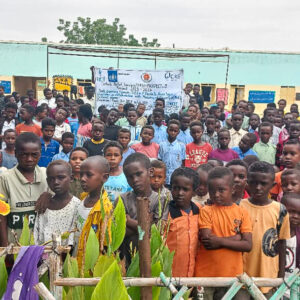Due to the conflict that broke out in Sudan last April, several men and women have been forced to leave their homes and villages behind in search of safety and for the survival of their families in other parts of the country and beyond, including Chad. In their flight, many displaced families did not have ...
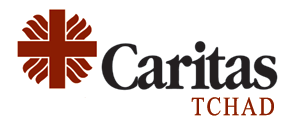
Address: Caritas Chad, Bureau Permanent de Coordination, N’Djaména
BP: 136, Chad
Telephone: +235 225 25 080
Email: [email protected]
Twitter: SECADEV
www.caritastchad.org
The National Union of Diocesan Relief and Development Associations (UNAD – Caritas Chad) is an instrument of the social ministry of the Church of the Family of God in Chad. Established on 27 October 1986, it consists of eight member associations that are active throughout the country: AURA – Caritas Mongo, BELACD Caritas in Doba, BELACD in Goré, BELACD in Laï, BELACD in Moundou, BELACD in Pala, BELACD in Sarh and SECADEV in the Archdiocese of NʼDjamena.
UNAD – Caritas Chad’s vision is that of the Catholic Church in Chad, namely “striving for a society of justice and peace with men and women who are confident about their possibilities and strengths, and who engage in concrete and fruitful activities to ensure their self-reliance”.
It is also the vision of a world in which the goods of God’s creation belong to everyone. The men, women and children of Chad have the right to live with dignity and love. UNAD – Caritas Chad’s fundamental values are: faith, charity and loving one’s neighbour.
UNAD – Caritas Chad’s strategic priorities are:
- Basic social services (food security, healthcare, hygiene and sanitation)
- Local governance (civic and citizenship education, conflict prevention and management, rational and collective management of natural resources)
- Emergencies and humanitarian actions
- Capacity building (partnerships, visibility and development of human resources)
Projects and activities coordinated by UNAD – Caritas Chad in 2017 include:
- Healthcare (Priority 1): support for 36 health centres, 3 hospitals and 6 diocesan patient support centres; supply of equipment and medicines, and capacity building for health centre staff. The Healthcare programme is funded by Misereor.
- Self-Reliance Capacity Building Project (PRECA) for Sudanese refugees in the Milé and Kounoungou camps and surrounding villages (Priority 3): this is the continuation of EA projects implemented since the arrival of Sudanese refugees in eastern Chad. PRECA covers these areas: food security, WASH and capacity building. It is funded by Caritas Denmark and implemented by SECADEV – Caritas Ndjamena.
- Project to integrate Sudanese refugees into local communities (Priorities 1, 2 and 4), implemented by SECADEV and funded by Caritas Denmark for a period of twelve months.
- EA 21/2016 (Priority 3): project to support victims of the Niger crisis in the Lake Chad region, implemented by SECADEV. The areas covered are: food security, WASH and livelihoods.
- Socio-economic reintegration project for returnees from the Central African Republic to southern Chad, at the Djako site in the diocese of Moundou. Lasting for eight months, it primarily concerns livelihood activities. It is implemented by Caritas Moundou with funding from Secours Catholique (Caritas France).
- Personalised local support programme (A2P, Priority 4) for institutional development and organisational capacity building. The current phase lasts for 3 years, from 2016 to 2018, and affects the entire Caritas Chad network. It is funded by Secours Catholique (Caritas France).
UNAD – Caritas Chad’s main partners are: the government of Chad via its various ministries, Caritas Internationalis, Caritas Africa, Misereor, Caritas Switzerland, Caritas Denmark, Secours Catholique (Caritas France), Catholic Relief Services, Caritas Spain, Caritas Korea, Caritas Japan, the European Union and the French Development Agency (AFD).
Updates from Chad
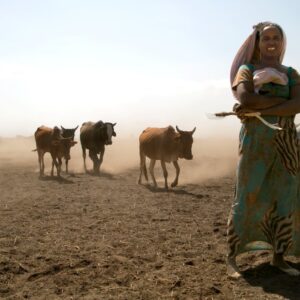
As part of the inauguration of the Global Year of Action of the “Together We” campaign, aimed at promoting integral ecology by simultaneously protecting people and our planet, Caritas Internationalis will launch its publication Displaced by a changing climate, highlighting the vital need for collective action to address the consequences of environmental degradation. Caritas Internationalis, ...
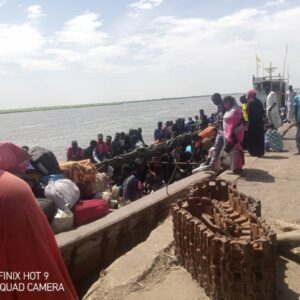
Sudan has been embroiled in a devastating armed conflict since last April, triggered by power struggles among the country’s military factions. The fighting, primarily between the Sudan Armed Forces (SAF) and the Rapid Support Forces (RSF), has had a profound impact on civilians, resulting in large-scale displacement and shattered access to food, water, health care, fuel, ...
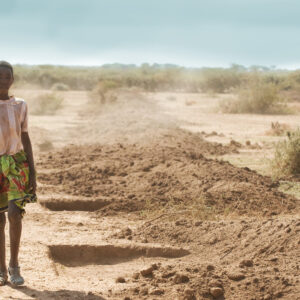
With the close of the 50th Session of the Human Rights Council in Geneva this month, Caritas Internationalis is urging international and local leaders to take action in responding to the severe food insecurity in the Horn of Africa and the Sahel regions. The right to food is a basic human right and the implementation ...
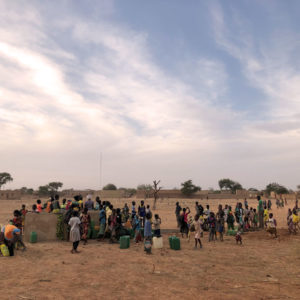
The upsurge in armed attacks, poorly supervised human migration, and an increase in food insecurity are endangering social cohesion and peace in the Sahel region of West Africa.
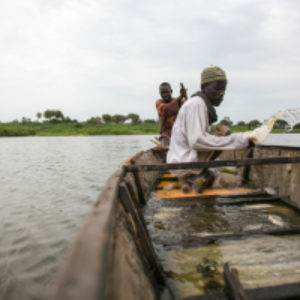
A High Level Conference on the Lake Chad Region is taking place in Berlin, Germany, 3-4 September. Africa’s Lake Chad region, which includes parts of Nigeria, Niger, Chad and Cameroon, is facing a massive humanitarian crisis driven by poverty, climate change and conflict.
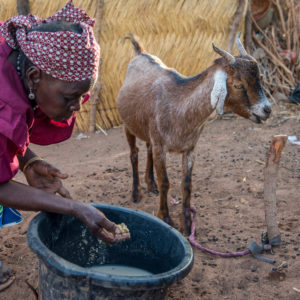
Nearly 6 million people in Burkina Faso, Chad, Mali, Mauritania, Niger and Senegal are struggling to meet their daily food needs. Severe malnutrition threatens the lives of 1.6 million children.
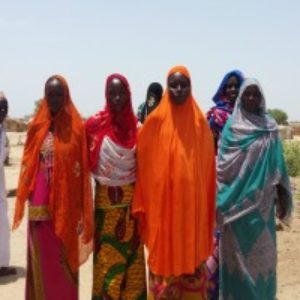
“We have some animals, but everyone is poor,” said one fisherman in the Chadian village of Bibi-Barrage, on Lake Chad. “If we had some canoes, we could fish.” For two years now, indigenous villagers and displaced people have been living together surviving on the same land resources with not enough to go around. Lake Chad ...
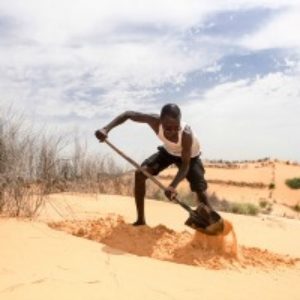
Mathieu Kaldaoussa and his family have experienced the terror of Boko Haram first hand. They were forced to flee their village in Cameroon after repeated incursions from Boko Haram fighters. Three of his children were kidnapped. His children have still not been found and the 32-year-old and his wife and their four remaining children are ...
Caritas Africa Info
- Angola
- Benin
- Botswana
- Burkina Faso
- Burundi
- Cameroon
- Cape Verde
- Central African Republic
- Chad
- Comoros
- Congo Republic
- Congo (DRC)
- Cote D’Ivoire
- Equatorial Guinea
- Eritrea
- Ethiopia
- Guinea
- Gabon
- Gambia
- Ghana
- Guinea-Bissau
- Kenya
- Lesotho
- Liberia
- Madagascar
- Malawi
- Mali
- Mauritius
- Mozambique
- Namibia
- Niger
- Nigeria
- Rwanda
- São Tomé and Príncipe
- Senegal
- Seychelles
- Sierra Leone
- South Africa
- South Sudan
- Sudan
- Swaziland
- Tanzania
- Togo
- Uganda
- Zambia
- Zimbabwe

